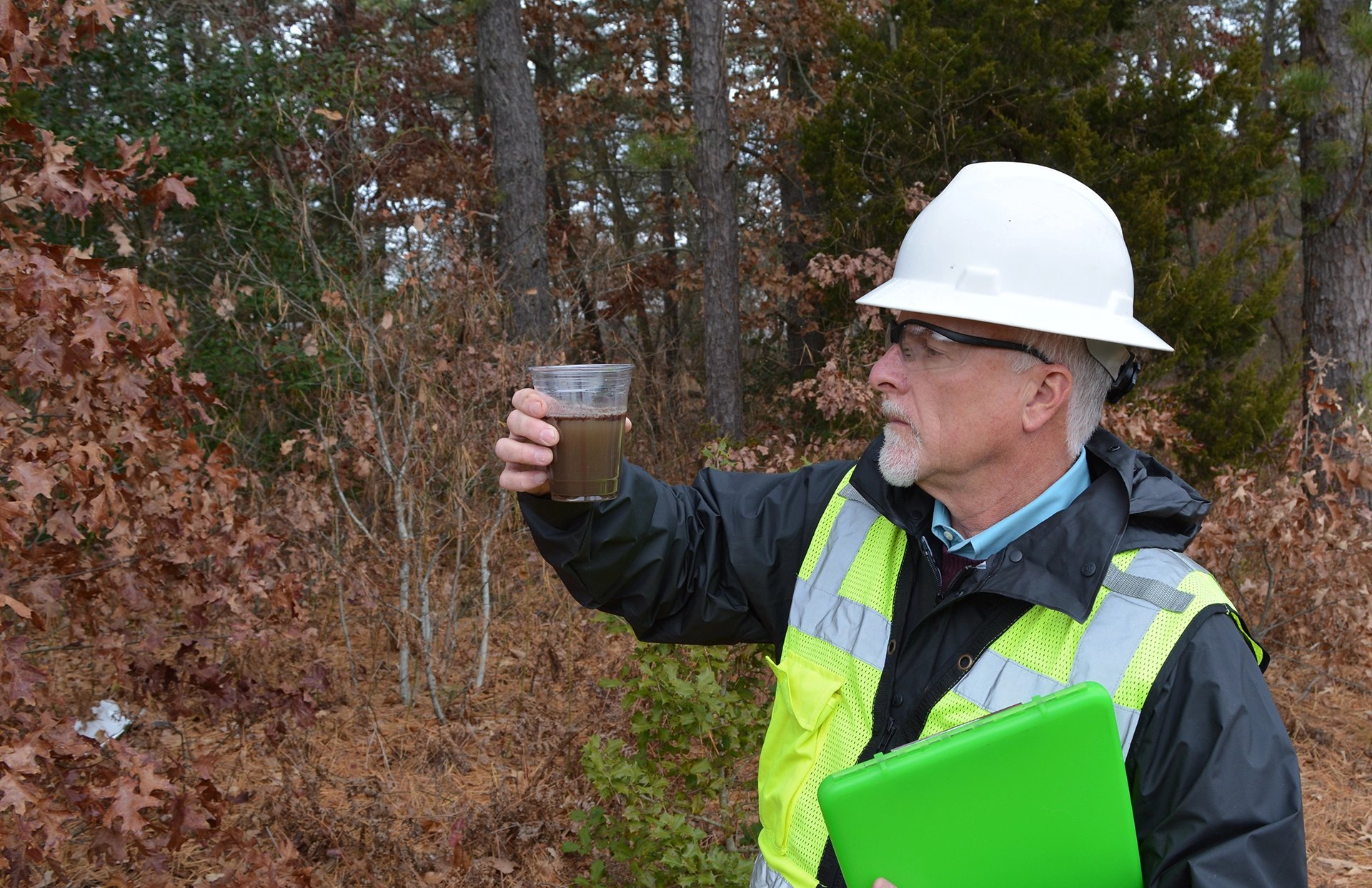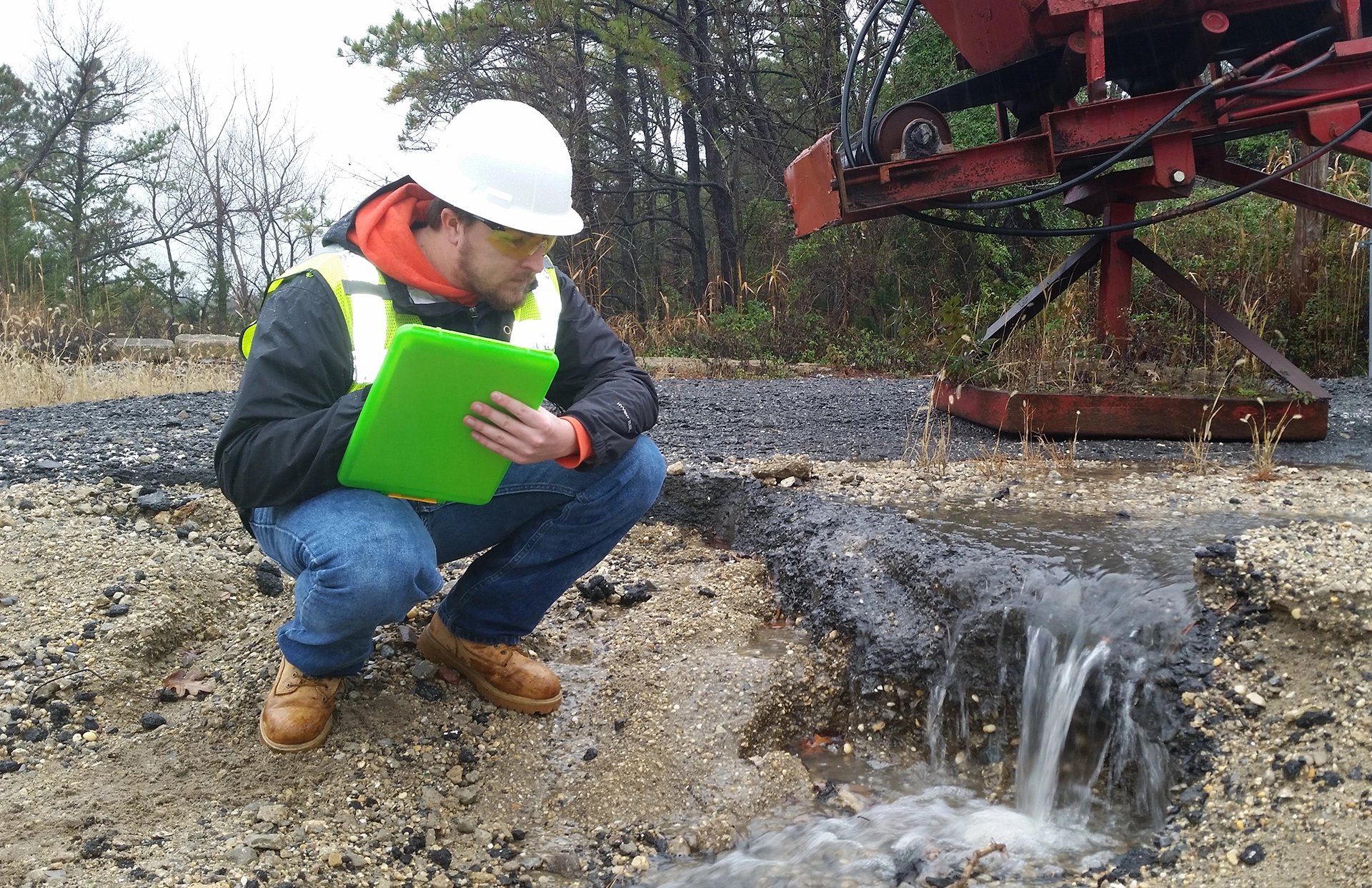Learn what bad sample results mean to you when it comes to reporting time.
A lot of our stormwater clients have been asking us lately if they need to report bad stormwater sampling results. It's summertime, your site's probably busy, and there are frequent summertime showers. Some people are finding their samples aren't as good as they should be. Add to the fact that people are getting multiple stormwater samples, in order to get better results, and the question tends to get asked even more.
This is a very, very important question folks. If you have a stormwater permit, listen up because the difference is being in compliance, or getting it wrong and being in some seriously hot water.
Do I need to report all of my stormwater sampling data?
The short answer is yes. Yes, you have to report ANY AND ALL DATA obtained under an NPDES stormwater permit of any kind, including any and all stormwater monitoring results. Good, bad, whatever, you have to report the data you get back from your stormwater monitoring results.
Failure to report stormwater data may carry significant penalties, including civil and criminal penalties. It gives the appearance that you’re not being truthful, and are hiding information the government requires you to disclose. However you cut it, it’s not good, so don’t do it.
We see this situation happen in one of two ways:
- We see people "practicing" with their process, and grabbing samples just as a learning experience. Great idea, bad execution. When you grab a sample, send it out, and get results back, you are legally required to report that data. Even if you grab a sample just to try our your fancy new pH meter, you are required to report that data!
- People get multiple stormwater discharge samples since their first one was bad. Great, especially if the second (or third, or fourth) sample shows that you have "cleaned up" and your results are better. Again, every bit of sampling data must get reported, no matter how bad it is!

Reporting Bad Stormwater Samples
Here's something to consider. Getting a bad result from stormwater discharge sampling isn't the end of the world. It's much better than getting no result at all! Besides the drought-stricken southwest, most places get rainfall pretty regularly this time of year, and regulators know that.
Take a sample. Get the data. Report it.
Failure to report the results of stormwater monitoring could carry penalties that could affect you, your operation, and even the person responsible for taking and reporting the stormwater samples. Even claiming you didn't get any precipitation could result in penalties and violations, considering there are now weather monitoring devices located all over. Don't fake it, don't lie, and don't neglect to send in your stormwater monitoring results.
What to do if you get a bad stormwater sample
It's simple enough, you should do the following:
Was it poor stormwater BMP implementation or design? Poor sampling technique? Maybe even a possible lab error (it does happen)! Take any steps possible to correct that situation. This might sound like cheating, but that’s actually one of the purposes of taking samples. Its goal is to check how your pollution prevention practices are working. If they aren’t, and stormwater monitoring results are bad, then you need to adjust your stormwater BMPs!
Take another stormwater discharge sample.
If you’re still in the same sampling period, sample again! If you enhanced and improved site conditions, you should get better results. It'll show regulators you addressed the problem, and are trying to do the right thing (ie, they'll cut you some slack). If you can't take your sample until the next monitoring period, that's ok too. It'll still show you've cleaned up your site and are trying to do better. The process of evaluating what went wrong, correcting it, and then hopefully getting better results can mean a lot if you’re trying to reduce a penalty.
Know how to report multiple results from the same sampling period.
Most stormwater reporting requirements require you to indicate the number of samples taken during the sampling period, as well as the maximum value obtained (probably the bad result). Some stormwater permits ask for averages, so if you've gotten a better second sample, your results should go down. That's why a second result can be so helpful. It's a good way of offsetting your samples.

The Bottom Line on Reporting Bad Stormwater Discharge Sampling Results
So again, getting a bad result isn't the end of the world, and yes you have to report your bad stormwater results. Your best bet is to do your sampling, get your data, send it in, and if there's an issue, fix the problem. It's not rocket science. Make sure your facility and staff are following your stormwater BMPs. If they are and you're still getting bad results, change your BMPs.
Need help with stormwater permit compliance?
We get it, dealing with sampling can be enough of a pain, even if you're getting good results. After all, you have a business to run! If you're overwhelmed, you're not alone. RMA has been actively involved in helping companies get and stay in compliance with stormwater permits across the United States since our founding in 1992. Long story short, we know the ins and outs of the environmental problems industrial and commercial facilities face and can help you get into compliance with stormwater permits (that includes sampling!) and other applicable environmental laws and regulations, ensuring your business stays out of trouble and in compliance.
Our staff members have been on-site at thousands of operations across the country, so when we say we've seen it all and done it all, we mean it. We've helped everyone, from globe-spanning, multi-national organizations to small "mom & pop" operations. No matter your size or location, we'd love to learn how we can help.
So, if you're having any type of issue at your facility and need the help of an environmental consulting firm with a proven track record, reach out. Even if we can't help, we’ll do our best to steer you in the right direction. Feel free to contact us at info@rmagreen.com, click here to contact us, or give us a call anytime at 888-RMA-0230 to learn how we can help your facility deal with stormwater permits and other environmental regulations.




